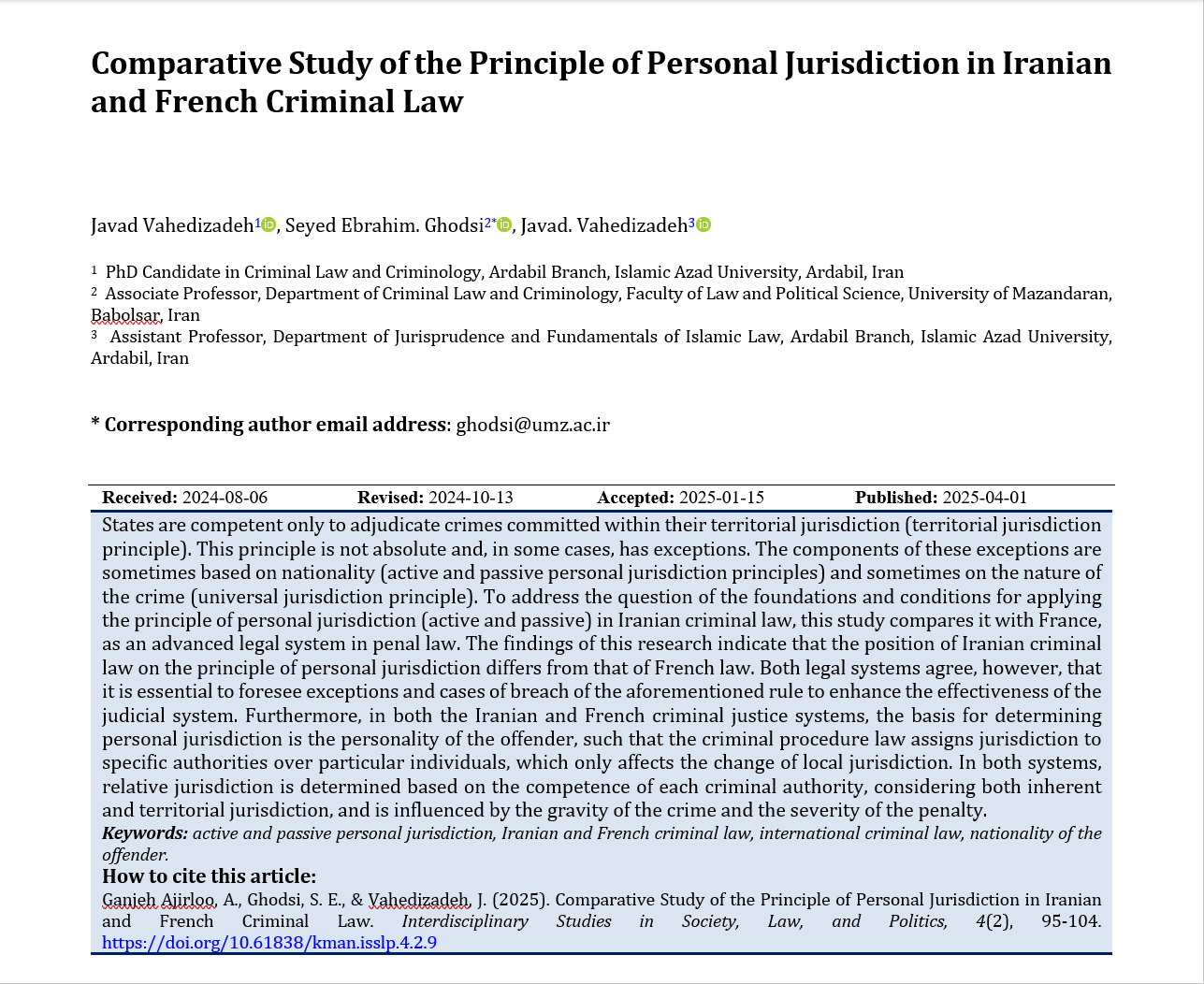Comparative Study of the Principle of Personal Jurisdiction in Iranian and French Criminal Law
Keywords:
active and passive personal jurisdiction, Iranian and French criminal law, international criminal law, nationality of the offenderAbstract
States are competent only to adjudicate crimes committed within their territorial jurisdiction (territorial jurisdiction principle). This principle is not absolute and, in some cases, has exceptions. The components of these exceptions are sometimes based on nationality (active and passive personal jurisdiction principles) and sometimes on the nature of the crime (universal jurisdiction principle). To address the question of the foundations and conditions for applying the principle of personal jurisdiction (active and passive) in Iranian criminal law, this study compares it with France, as an advanced legal system in penal law. The findings of this research indicate that the position of Iranian criminal law on the principle of personal jurisdiction differs from that of French law. Both legal systems agree, however, that it is essential to foresee exceptions and cases of breach of the aforementioned rule to enhance the effectiveness of the judicial system. Furthermore, in both the Iranian and French criminal justice systems, the basis for determining personal jurisdiction is the personality of the offender, such that the criminal procedure law assigns jurisdiction to specific authorities over particular individuals, which only affects the change of local jurisdiction. In both systems, relative jurisdiction is determined based on the competence of each criminal authority, considering both inherent and territorial jurisdiction, and is influenced by the gravity of the crime and the severity of the penalty.
Downloads






